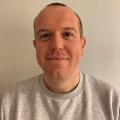
TECOSIM, a global specialist in computational fluid dynamics (CFD) and computer-aided engineering (CAE), is supporting the next generation of renewable energy through state-of-the-art simulation.
The company, which has offices in Norfolk, Essex, Warwickshire and worldwide, was appointed by Lowestoft-based Max Nicholas Renewables to test its patented Continuous-Thrust Turbine Technology™, which uses moving water to generate power at more than 10 times the efficiency of similar renewable sources.
Max Nicholas Renewables’ Continuous Thrust turbine is a floating turbine which can be used wherever there is flowing water, including run-of-river locations, in-pipe solutions, as well as nearshore and offshore tidal streams.
“Our Continuous Thrust technology has several distinct advantages over existing hydro turbines,” said Robert Norfolk, founder and chief technical officer of Max Nicholas Renewables. “As well as offering more than 10 times the efficiency, it can operate in shallow water and turbulent conditions, is marine-life friendly and is not limited by natural phenomena such as cavitation.”

Martijn Muntingh, CEO of Max Nicholas Renewables, added: “Hydropower is going to be part of the energy makeup of the UK – and it's not there to replace solar or wind, it's there to complement those other renewables.
“But the difference between run of river – or moving water – and solar and wind is that it is predictable. When the sun isn't shining or the wind isn't blowing, there obviously isn't that opportunity to produce renewable power from those sources – whereas the tide is consistent because it's based on the gravitational forces of the moon.”
Robert engaged TECOSIM to conduct real-world testing on his invention, having first met the company at EEEGR's Southern North Sea Conference and Exhibition (SNS) in 2019.

“TECOSIM is a leader in its field of specialised engineering services, and specifically numerical calculation and simulation,” Robert explained. “With TECOSIM looking to broaden its offering into renewable energy and sustainability, it felt like, and has proven to be, the perfect match with our requirement for CFD and simulation.
“Based on this work, we made several early adjustments to maximise the efficiencies of our Continuous-Thrust Turbine Technology,” he added. “The helpful, flexible and collaborative nature of TECOSIM’s team has stood out, especially during the early days when there were several moving parts, so to speak!”
Geoff Camps, engineering director at TECOSIM, said: “We first met Robert at the SNS show in 2019 and have been supporting the development of this novel turbine project with CFD and CAE as it has progressed from a concept to a prototype.

“We have supported with CFD analysis of flow paths, determining fluid velocities, estimating the rotor torque and efficiency, and FEA/CAE analysis to check and optimise the structure, including fluid structural interactions (FSI) – and we have further supported with computer-aided design (CAD) for the build phase.
“The opportunity has allowed us to gain further exposure and experience in the energy sector and to further develop our skillsets.”
Rotor blade research projects
TECOSIM Germany is on track with its three-year project HANNAH, which in German stands for ‘Challenges of the industrial application of nano-modified and hybrid material systems in rotor blade construction’, and is funded by Germany’s Federal Ministry for Economic Affairs and Energy.
The company has teamed up with Leibniz University in Hanover, DLR Braunschweig, Fraunhofer Institute IWES in Bremerhaven and other industrial partners INVENT GmbH and Zeisberg Carbon GmbH to carry out its research.
“TECOSIM provides for new types of materials in rotor-blade construction fatigue and strength assessment by simulation,” said Tom Sill, Hamburg branch manager for TECOSIM.
TECOSIM evaluates various composite materials by building full-scale rotor blades using state-of-the-art finite element software. The rotor blades are then subjected to the various loads they would be subjected to in the real world as well. Adjustments to the design and material can then be made without any problems, and the virtual tests can be repeated.

“As wind turbine technology has improved, current materials have been stretched to their maximum,” added Tom. “One way to further improve the lifespan and efficiency of wind turbines could be the application of these new types of materials.”
In addition, TECOSIM Germany is involved in Add2ReliaBade, which is also funded by the Ministry of Economic Affairs and Energy. The focus of TECOSIM here is to assess the severity of production defects by using CT scan data from rotor blades.
“By using AI technology, we will classify the types of damage and assess the severity of detected defects,” said Tom. “Considering this knowledge, the weight of the blade could potentially be reduced and/or lifetime could be increased”.
Add2ReliaBlade is also a joint project with Leibniz University in Hanover, Fraunhofer Institute IWES in Bremerhaven and industrial partners Wölfel GmbH and TPI Composites GmbH.
For more information, visit www.tecosim.co.uk, email info@uk.tecosim.com or call 01268 889550.



Comments: Our rules
We want our comments to be a lively and valuable part of our community - a place where readers can debate and engage with the most important local issues. The ability to comment on our stories is a privilege, not a right, however, and that privilege may be withdrawn if it is abused or misused.
Please report any comments that break our rules.
Read the rules here